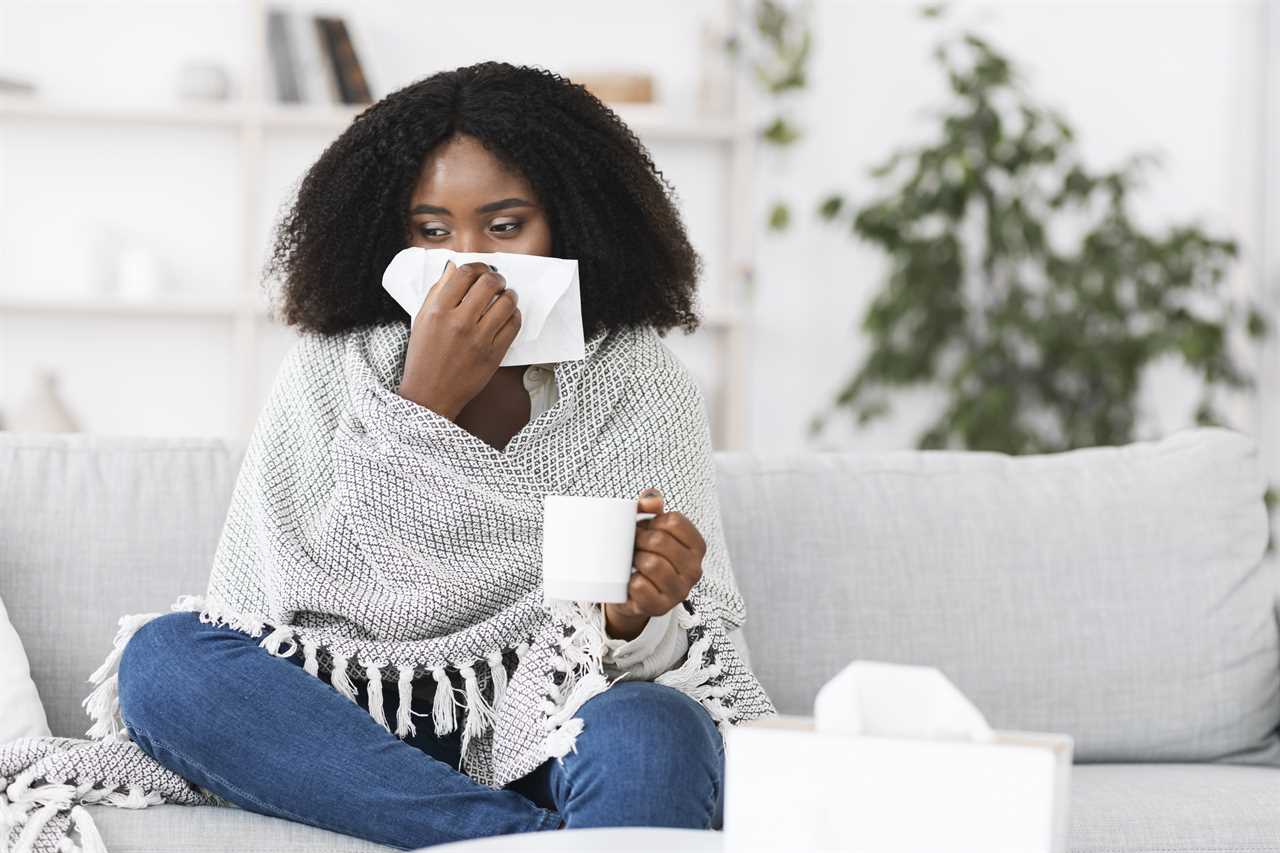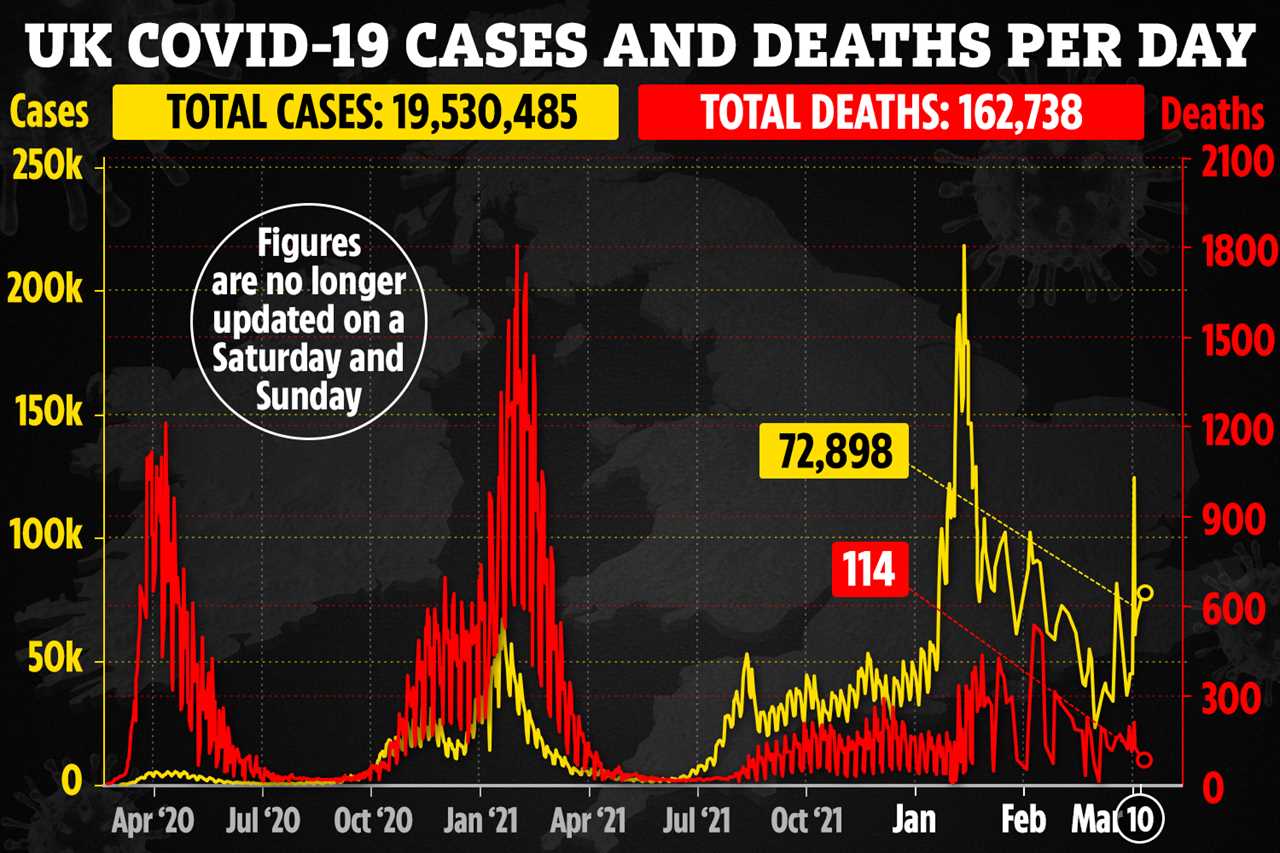BRITS are slowly getting used to living with coronavirus – but cases are rising.
People are still testing positive with the bug and because of this, it’s key that you know the early warning signs of Omicron.


While Omicron is a milder infection than previous variants such as Delta and Alpha, it is more transmissible.
Brits who have tested positive for the bug have been logging cases on the ZOE Covid Study App, with estimate suggesting there are over 221,162 new daily infections.
Data from the government dashboard however shows that over 72,000 people a day are testing positive.
Health secretary Sajid Javid said this was to be expected after ripping up the Covid rule book last month.
The latest estimate from the Office for National Statistics (ONS) shows around one in 25 people are now infected with Covid.
The ONS says it’s not clear exactly what is behind the rise, but it is likely it is a combination of no restrictions, waning immunity and a more contagious sub-variant of Omicron becoming dominant.
Current rules state that you legally don’t have to isolate if you have the bug.
If you can though, you should as this will help protect other people.
Many people who have Omicron say it feels like a common cold, and here are the 8 early warning signs you need to look out for.
- Scratchy throat
- Lower back pain
- Runny nose/congestion
- Headache
- Fatigue
- Sneezing
- Night sweats
- Body aches
The NHS still states that the three main symptoms of coronavirus are a new persistent cough, a loss of taste and smell and a high temperature.
Data from an Omicron outbreak in Norway showed that 72 per cent of people who tested positive had a sore throat.
The patients said that the symptom last about three days.
Dr Jorge Moreno who works at an outpatient clinic in Connecticut, US and is an assistant professor of medicine at Yale School of Medicine, said that most patients coming in are reporting the same ailment.
He told Insider that most people testing positive have a dry, sore throat that causes sharp pain when they swallow.
Dr. Patricia Williams, with Novant Health in North Carolina, US, said many people have been suffering with upper respiratory issues.
The best way to prevent infection and cases of severe coronavirus is to continue to come forward for vaccinations.
While vaccines won’t stop you getting the bug, they will help you deal with the symptoms outlined above, and will lessen your need to be hospitalised.
The Omicron sub-variant, BA2, is now the dominant strain in the UK.
It is thought to be just as mild, especially in the vaccinated, but spreads far quicker.
Professor Adrian Esterman, an epidemiologist, has warned cases are going to “skyrocket”.
He wrote: “Omicron BA.2 is about 1.4 times more infectious than BA.1. The basic reproduction number (R0) for BA.1 is about 8.2, making R0 for BA.2 about 12.
“This makes it pretty close to measles, the most contagious disease we know about”, he added.






